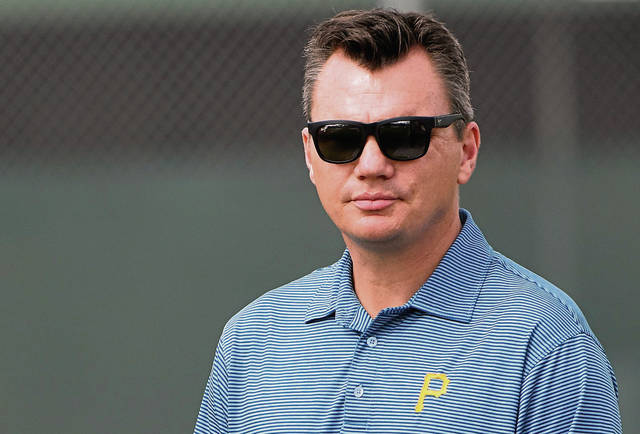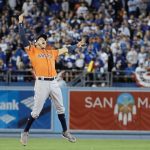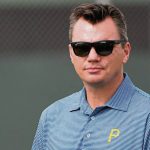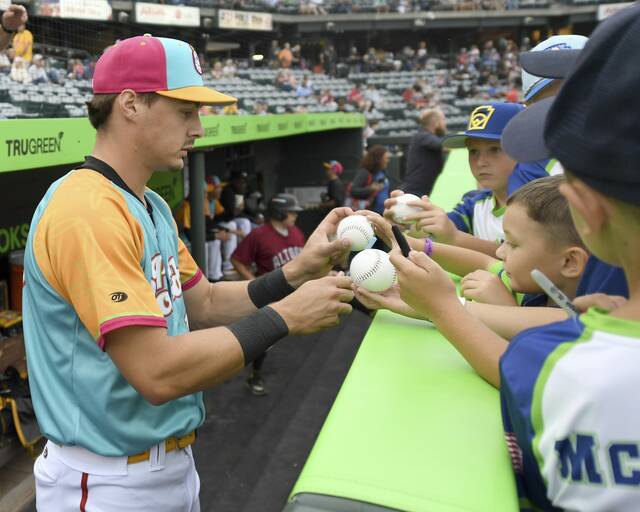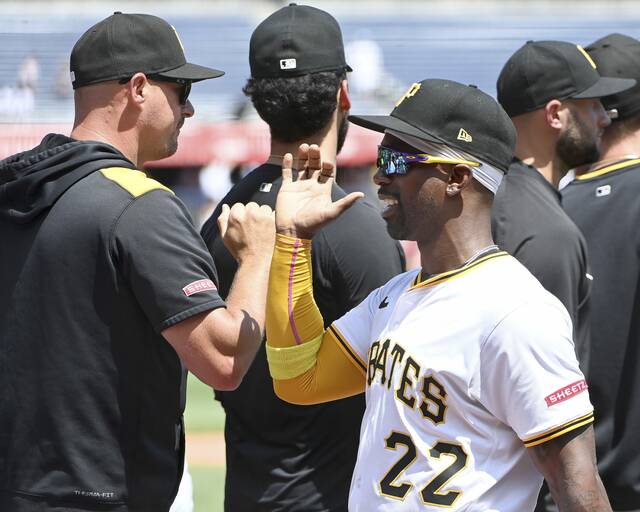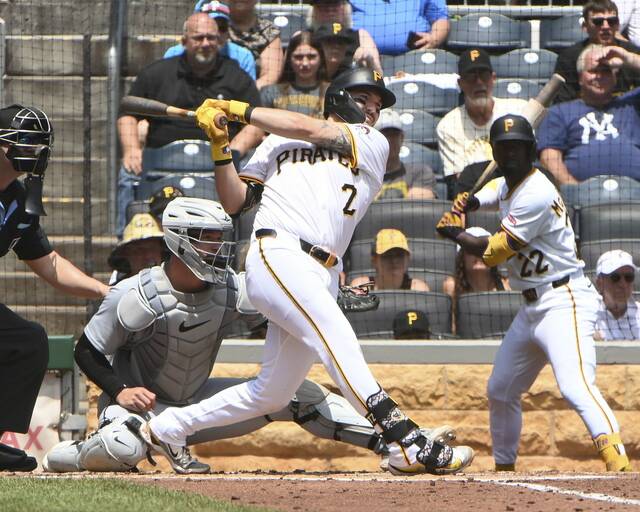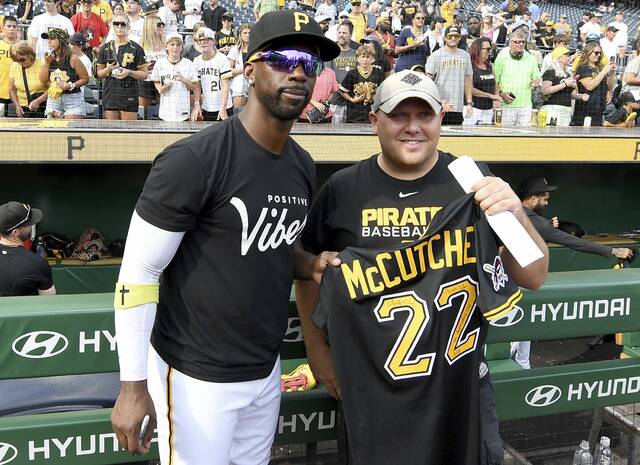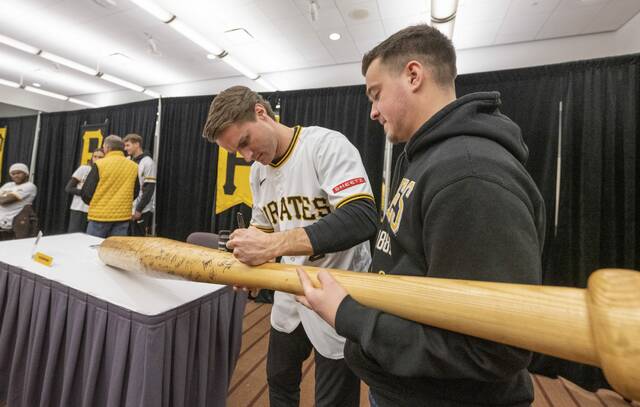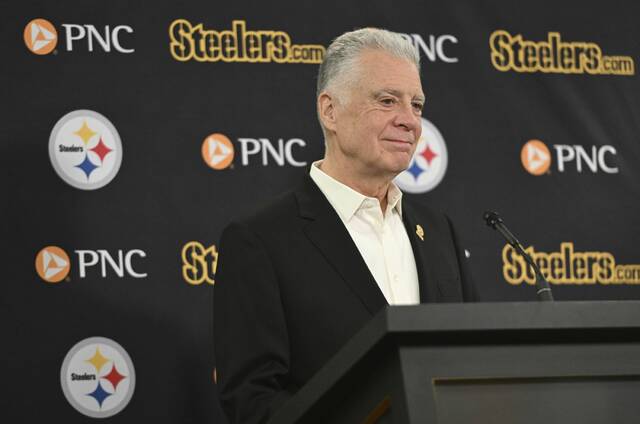If the Pittsburgh Pirates are looking to go from finishing in last place to winning the World Series in a short span, they need look no further than the Houston Astros for a blueprint on how to build a worst-to-first team.
But not necessarily how to draft one.
After losing 100-plus games from 2011-13, Houston drafted outfielder George Springer, shortstop Carlos Correa and third baseman Alex Bregman. They became All-Stars and franchise cornerstones for three consecutive 100-win teams, including the 2017 World Series champions.
While Pirates general manager Ben Cherington might want to follow that template, one part of the Astros’ orbit he would prefer not to repeat is how they struck out on two of their No. 1 overall picks in back-to-back years.
“I think that’s a good point,” Cherington said. “The Astros have had a ton of success without a 100% hit rate at the top of the draft.”
The Astros chose Mark Appel with the first pick in 2013, a year after the Pirates selected the Stanford right-hander at No. 8 only for him to turn down their offer of a $3.8 million signing bonus. Appel never made it past Triple-A with Houston and was included in the package of their December 2015 trade with Philadelphia for reliever Ken Giles.
The following year, the Astros took high school left-hander Brady Aiken with the No. 1 pick but failed to sign him after discovering elbow issues and haggling over the signing bonus. They used their compensation pick to take Bregman second overall in 2015, and Aiken was picked No. 17 by Cleveland.
“To me, that doesn’t mean 1-1 is any less important,” Cherington said. “What that means is you have to do a lot of things well. The draft is the focus right now, but we’ve got to do a lot of things well, and the Astros have done a lot of things well.”
Cherington certainly has to do better at the top of the draft than his predecessors, who had some monumental misses despite having a top-11 pick in the MLB Draft for a dozen years in a row.
David Littlefield chose Ball State right-hander Bryan Bullington with the first overall pick in 2002, only for Bullington to be a bust who was 0-3 with a 5.89 ERA in six appearances over two seasons.
Littlefield fared better in his next three drafts, taking left-hander Paul Maholm at No. 8 in 2003 and future second baseman Neil Walker and outfielder Andrew McCutchen at No. 11 each of the next two years before whiffing on pitchers Brad Lincoln and Daniel Moskos at No. 4 in 2006 and ‘07. McCutchen became the NL MVP and Walker a key contributor on their three consecutive wild-card teams.
Neal Huntington had top-four picks in four consecutive seasons, selecting third baseman Pedro Alvarez No. 2 in 2008, catcher Tony Sanchez No. 4 in ’09 and power right-handers Jameson Taillon No. 2 in 2010 and Gerrit Cole with the first overall pick in ‘11. Alvarez and Cole made one All-Star appearance each with the Pirates.
Cherington hasn’t tipped his hand on who the Pirates will pick, though draft analysts consider high school shortstops Jordan Lawlar and Marcelo Mayer, Vanderbilt right-hander Jack Leiter and Louisville catcher Henry Davis top-five prospects who are candidates for the No. 1 pick.
MLB Network analyst Dan O’Dowd, who will appear on the network’s coverage of the draft Sunday, believes Cherington made a strong selection last year by taking New Mexico State middle infielder Nick Gonzales but can’t afford to make a mistake with the first overall choice this year or in future drafts.
“When you are in the length of the rebuild that Ben is in, this is not your first crack of picking at or near the top of the draft,” O’Dowd said. “Ben needs to have three monster drafts back-to-back-to-back to put the Pirates in the position of being a perennial contender.
“You can’t have a good draft this year and a bad draft next year. It’s boom, boom, boom, then you’ve got to be creative on your waiver claims, your trades, your under-the-radar free agent signings. Your development process in house has to be outstanding. All of those things have to come together to turn the Pirates into a winning organization.”



